By; Dr. Muhammad AkramZaheer
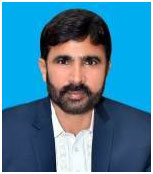 In Iraq, most of the constituent elements towards the growth of a community, such as public and democratic institutions, have been weakened or neglected by decades. The Iraqis and their leadership may have to take some time to learn communal tolerance and have to organize themselves for democratic government. Arab nationalism and the decade’s monarchy had caused Iraqi society to suffer bitterly. Such a society finds very low levels of political trust, social tolerance, popular support for political liberty, and gender equality and is found far short of what is found in all established democracies Iraq is deprived of almost every possible prerequisite for democracy. Throughout Iraq, people who have a little bit of power are making their utmost endeavors to establish their own networks. All this is happening unnoticed. They will not give up this authority gladly. Significantly, both sects of Muslims the Sunni and Shiite have a traditional vision about the role of a woman in the state. As Sharon Waxman in the Washington Post on 27 Jan 2007 narrated from Iraq Iraqi women live subject to the strictures of a patriarchal society that dictates when and where women may be seen, whom they can marry, under what circumstances they can divorce. All over Iraq, democratization is facing obstacles by religious and cultural fundamentals that neither inspire nor encourage freedom in the political process. The developments of democratization become slower because of these elements. On the other hand, Iraq has definitely its incapability to come as the provisions like the modern world. Paul Kennedy a Historian describes: Far from preparing for the 21st century, much of the Arab and Muslim world appears to have difficulty in coming to terms with the 19th century, with its complex inheritance of secularization, democracy, laissez-faire economics, transnational industrial and commercial linkages, social change, and intellectual questioning.
In Iraq, most of the constituent elements towards the growth of a community, such as public and democratic institutions, have been weakened or neglected by decades. The Iraqis and their leadership may have to take some time to learn communal tolerance and have to organize themselves for democratic government. Arab nationalism and the decade’s monarchy had caused Iraqi society to suffer bitterly. Such a society finds very low levels of political trust, social tolerance, popular support for political liberty, and gender equality and is found far short of what is found in all established democracies Iraq is deprived of almost every possible prerequisite for democracy. Throughout Iraq, people who have a little bit of power are making their utmost endeavors to establish their own networks. All this is happening unnoticed. They will not give up this authority gladly. Significantly, both sects of Muslims the Sunni and Shiite have a traditional vision about the role of a woman in the state. As Sharon Waxman in the Washington Post on 27 Jan 2007 narrated from Iraq Iraqi women live subject to the strictures of a patriarchal society that dictates when and where women may be seen, whom they can marry, under what circumstances they can divorce. All over Iraq, democratization is facing obstacles by religious and cultural fundamentals that neither inspire nor encourage freedom in the political process. The developments of democratization become slower because of these elements. On the other hand, Iraq has definitely its incapability to come as the provisions like the modern world. Paul Kennedy a Historian describes: Far from preparing for the 21st century, much of the Arab and Muslim world appears to have difficulty in coming to terms with the 19th century, with its complex inheritance of secularization, democracy, laissez-faire economics, transnational industrial and commercial linkages, social change, and intellectual questioning.
In the presence of the approach of thinking of the people of tribal areas subjugated by a fabulous origin of the world, definite cultural characters make the Iraqi democratization much inflexible. For example, more than 75% of the Iraqis population live a tribal life and use the historian Abbas Kelidar, an Iraq specialist, terms primordial allegiances. Powerful family links, particularly the presence of cousin marriages show an important obstruction to liberal democracy. Robin Fox an anthropologist accounts liberal democracy is based on the Western idea of autonomous individuals committed to a public good, but that’s not how members of these tight and bounded kin groups see the world. Their world is divided into two groups: kin and strangers.
Naturally, consequently, this evidence indicates that large numbers of Iraqis are not passionate about the democracy of Western-style. After the fall of the Sadaam Hussain government, a scientific public opinion survey conducted in April 2003, resulted in unsatisfactory to those who expect an overflow of pro-democracy attitudes flowing in the course of the political system in Iraq. “In a survey about the type of political system they would want in Iraq, merely 36% of Baghdad population’ favored American or British democratic style in which a variety of parties compete openly for the government.
The plan for the democratization of Iraq by Bush administration is based upon the adoption of the new short-term constitution that can be successfully implemented by groups of Iraqi elites negotiating with one another’s concerns. On the other hand, democracy cannot be achieved simply by introducing institutional changes through the management of elites. Iraqis belong to tribes whose decision-making is dominated by tribal elders. When a survey was organized to know what kind of political system in Iraq would like to see by people, only 36 percent favored a British or American style multiparty democracy. However, 50 percent opted for one of the five variants of Islamic, presidential, or one party, rule. A more recent survey of Baghdad residents conducted by the Gallup Organization found comparable results. While 39 percent of respondents would prefer a multiparty parliamentary democracy, 47 percent would prefer some form of Islamic-centered government. The present-day political system of Iraq is in fact something of a hornet’s nest. For example, the complex world of anti-Baathist politics, where widespread manipulation with the numerous political groups places a more hindrance in the course of democratic government. At present in Iraq debates center more on history discrimination rather than on future potentials. The current political structure of the country must hold, for example, a Shiite Ahmad Chalabi leader of the Iraqi National Congress and other leaders of the group four million strong exile communities. Internally, although the main groups against Sadaam Hussein are Kurdish and Shiite, still a large number of parties and other political organizations are either being established or regrouping themselves on the political picture, from the communists on the far left to the constitutional monarchists on the conservative right. Everyone is desirous of benefiting since the fall of the Sadaam Hussain, if possible at the cost of opponents. There must be a balance of power between these promising to the dissimilar elucidation of the faith. A fundamentalist Shiite Arabs with the support of Iran dominated the Southern part of Iraq. Sunni Arabs were the backbone of Sadaam Hussain’s regime; they live in the Northern and Central parts of Iraq. There is a large Sunni Kurdish majority in Northern Iraq. Iraq, therefore, must tackle the ground reality that the more harmonized population of the society, the more possibility there is to the occurrence of peaceful democratization. It is the first opportunity for the Shia community to lead the politics of Iraq. As an interim measure, the possibility for Shia to politically dominate is supported by a hierarchical governmental arrangement interrelated with Sunni governmental understanding. Hence, new political institutions of Iraq must be fabricated to prevent the long-suppressed fundamentalist Shia from, first, tacking severe reprisal from the small number of Iraqi Sunnis, who have ruled Iraq since the days of the Ottoman Empire, and, second, disregarding the genuine desires of the, urban secularists, Kurds, Assyrian Christians Turkomen, and others. It may be dreadfully not easy to recognize a new Iraqi political leadership that could be satisfactory to all Iraqi sects. Political restoration means signaling a new political negotiation with the similar mature groups with contradictory demands and interests that in the past have seen Iraq a intensely standing country. Consequently, it is a common understatement to suggest that it will require a highly experienced political leadership to successfully form a track through the diverse sections carrying out Iraq’s domestic politics.
Thursday, May 16 2024


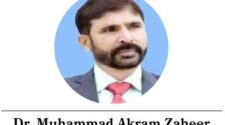
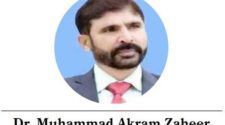
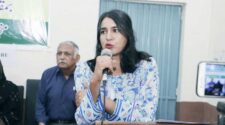

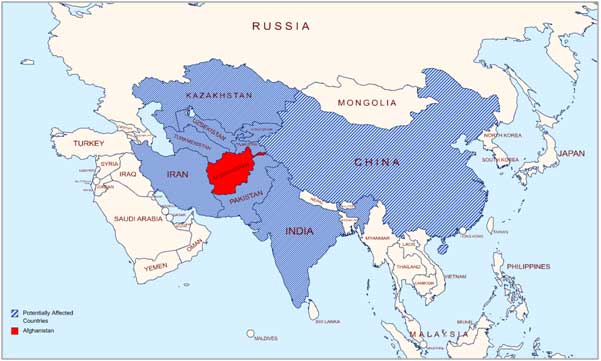

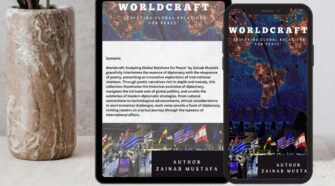
Deep insight can be seen in writing. Keep writing
This column based on reality. So nice words.
goood dr Akram sb. u r a light to show the way of success.
Wonderful Dr. Zaheer
Dr. you portrait a genuine picture of political culture of Iraq. Therefore, I think you missed new amendments in Iraqi constitution